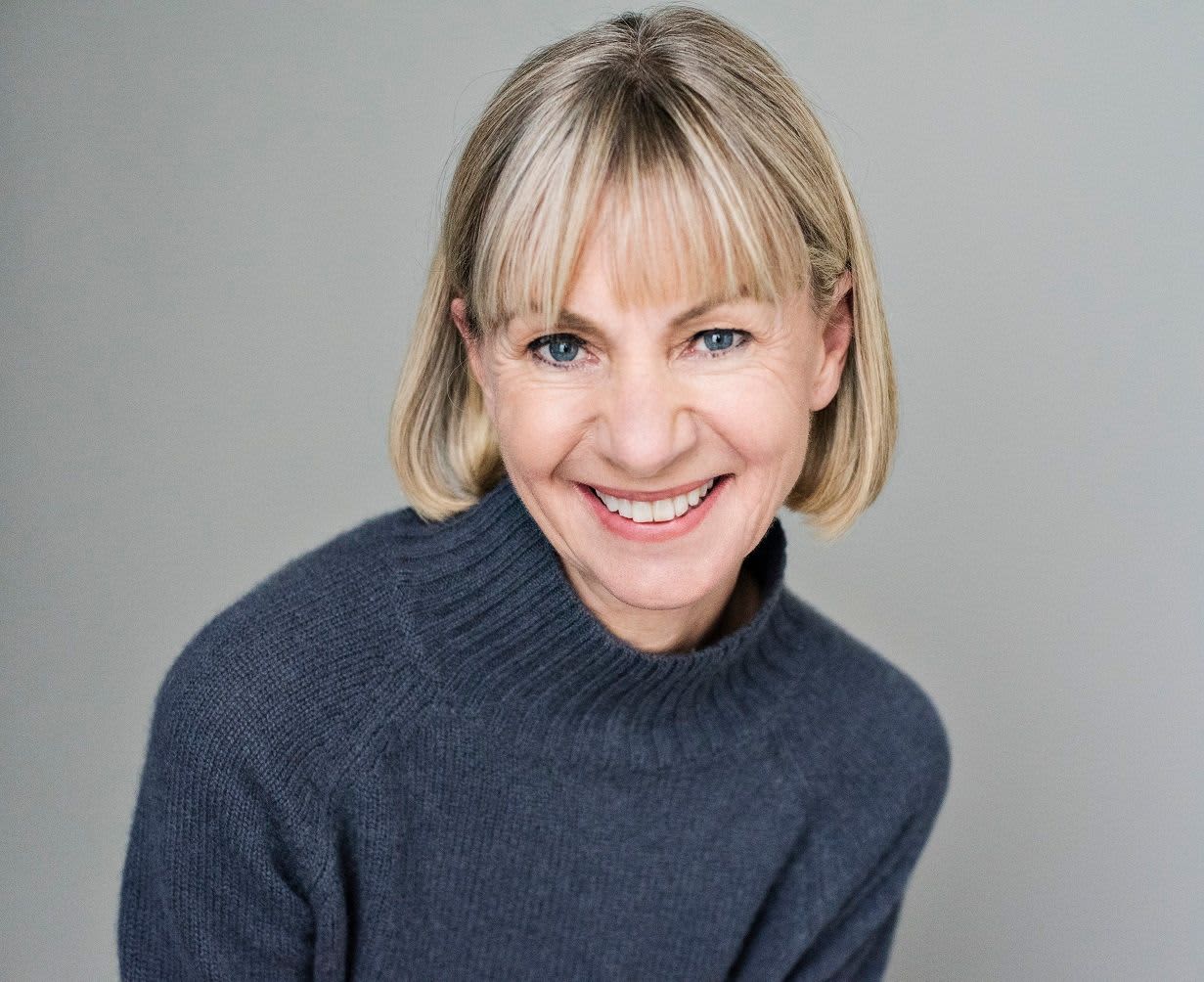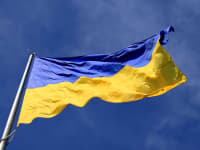Interviewing people of interest – actors, singers, writers, artists, etc – is a part of my job which I can’t imagine ever taking for granted. My colleague uses the term ‘nerv-cited’ to describe the feeling just before making contact: the sweet spot between nervousness and excitement. I was full of nerv-citement when I clicked the Zoom link to speak with Kate Mosse about her latest book and upcoming theatre tour.
I like to think honesty is the best policy, so I start our conversation by admitting to feeling rather overwhelmed. “Oh you shouldn’t, I’m very normal”. Sure, but who wouldn’t feel daunted by speaking to such a literary heavyweight? Her (many) books include the bestselling Languedoc trilogy, starting with Labyrinth in 2005 which has been translated into over 37 languages. Also a playwright, journalist, and broadcaster, Mosse was awarded OBE in 2013 for services to literature. Furthermore (if more was further needed) Mosse co-founded the Women’s Prize for Fiction (my most reliable source of must-read books each year) and in 2013 was named one of The Bookseller’s Top 100 influential people. She has appeared on every list since. Her latest book, Warrior Queens and Quiet Revolutionaries: How Women (Also) Built the World, is a non-fiction account of the ‘unheard and under-heard’ women who, throughout the centuries, who have been written out or ignored by the history books. It is also the story of how she delved into her own family’s past to discover more about her great-grandmother, the author Lily Watson, whose once-bestselling novels are now inexplicably out of print.
And now, she is coming to a theatre near you, touring across the country with a show based on ‘Warrior Queens’. It struck me as a novel route to take (excuse the pun), and I wondered, why a show? “The simple answer is I'm in my 60s now and you've got to do new things haven't you? It was very straightforward: a producer asked me ‘have you ever thought of doing a show inspired by this book? You know, it’s got everything – drama, stories, incredible facts’. I hadn't thought about it, but actually yes, because the whole point about the book is it is a celebration of amazing women. Then I started to dream – you know, imagining lights and props and music and all of these things. I think it’s different from doing a book tour as a show is first and foremost a great night out in the theatre. I do a lot of presenting and I do a lot of interviewing and I’m no stranger to standing up in front of 800 people, but this will be different. The only thing there will not be is costumes: I’m not an actress and I will not be taking on the personality of any of the people I will be talking about. I want everyone to leave the theatre buzzing, thinking of a woman that they would nominate. In every venue, there will be a way that the audience can say who their one woman in history would be and I see this as a way between us all of really getting a massive conversation going, whilst having some fun along the way.”
 A celebration? How can you not be angry at all of these stories of women who’ve been forgotten or airbrushed out of history? “I'm not an angry person. I’ve never found anger helpful, it’s a destructive thing. I’ve been a campaigning feminist for 40 years odd and the narrative of women being angry – which is used as a way to diminish, overlook, and reject women’s legitimate concerns – I think has been very damaging. So for me, I don’t get angry, I get frustrated. I get furious that the truth isn’t being told but anger isn’t what fuels me”. To give some context, in the week that we were speaking the news that Met Police Officer David Carrick had been perpetrating crimes against women perpetrated was breaking, women’s lives in Afghanistan were being further decimated by the Taliban and the male-centric list of nominees for the Brit Awards had just been announced. Just three examples of things I was angry about that week. I’m not trying to suggest there is parity between them, but common to each, arguably, was an erasure or a diminishing of women. “The writing of history and the recording of achievements has been almost exclusively in male hands and there are different ways that women disappear from the records. Sometimes it’s because men don’t see what women were doing, sometimes it’s because the men don’t believe women were there, or if they were, they were just making the tea.
A celebration? How can you not be angry at all of these stories of women who’ve been forgotten or airbrushed out of history? “I'm not an angry person. I’ve never found anger helpful, it’s a destructive thing. I’ve been a campaigning feminist for 40 years odd and the narrative of women being angry – which is used as a way to diminish, overlook, and reject women’s legitimate concerns – I think has been very damaging. So for me, I don’t get angry, I get frustrated. I get furious that the truth isn’t being told but anger isn’t what fuels me”. To give some context, in the week that we were speaking the news that Met Police Officer David Carrick had been perpetrating crimes against women perpetrated was breaking, women’s lives in Afghanistan were being further decimated by the Taliban and the male-centric list of nominees for the Brit Awards had just been announced. Just three examples of things I was angry about that week. I’m not trying to suggest there is parity between them, but common to each, arguably, was an erasure or a diminishing of women. “The writing of history and the recording of achievements has been almost exclusively in male hands and there are different ways that women disappear from the records. Sometimes it’s because men don’t see what women were doing, sometimes it’s because the men don’t believe women were there, or if they were, they were just making the tea.
Then there is deliberate erasure which we are seeing awfully in the modern world in Afghanistan where what the Taliban is doing to women is femicide. So there are different reasons in every moment in history. I want to establish the fact that history is like a jigsaw – if you’ve only got half the pieces you haven't got the full picture. It’s not about taking the wonderful men out, but it is about adding in all the women to tell the true story of how things happened. If we don’t have the true story then we don’t know who we are. We are seeing this at the moment; women's rights are going backwards not forwards. We can all see why, and we understand why, because that’s how history works. So, for me, it’s not that there was a moment of anger: all of my campaigning has always been about the positive journey. The book started from my social media campaign #womeninhistory and the very great realisation that – despite the fact that we live in very political times with very poor and partial political leadership – most people want to build up and celebrate not pull down. When I put out on social media tell me one woman in history who you think should be better known I had 1000s of people, men, and women, going ‘have you heard of her and her?’ so I think more of us travel hopefully than it sometimes seems.”
I get that, Kate, but after reading your book I’m struggling to let go of my own feelings of anger. “People do react differently some people read it and just do become infuriated beyond belief because they can’t believe it. I just did an interview with a male journalist and he's passionate about football. He said, ‘how did I not know that the FA deliberately destroyed the woman’s game?’ I replied, ‘well think about it now and tell other people’. People don’t notice absence but once it is pointed out you see it. I want people to use any feelings they have about the show to do some good. It’s very old-fashioned – I’m an old-fashioned idealist, somehow, still.”
Idealist she may be, but I am thinking more Warrior Queen or Quiet Revolutionary. Perhaps it’s an obvious question, but how would you describe yourself? “That’s a lovely question. Well, actually I’m glad you liked the title because I think the book and the show is a kind of love letter to history but also ask the question, what is history? Who gets to make it? Who gets to decide? And, of course, the truth is that most of the women we know from history are very visible, the queens and the commanders, because until fairly recently, history has mainly been written by men, and those are the values that they have espoused. Of course, we know that the quiet revolutionaries are the people that often change the world in a way sustainable way for good. People who just get on with it. In fact the phrase ‘quiet revolutionaries’ comes from a friend of mine who said to me, ‘you’re something of a quiet revolutionary really, aren't you?’ and I think that that’s exactly it. Some of the great women in history absolutely are fuelled by anger, they are leading from the front with their sword in their hand but what about everyone else doing slightly more quietly, round the back?” I interject, “like Josephine Cochrane, the American woman who invented the dishwasher” (It’s a story I’ve learned through reading the book – after a society dinner party at her home in Chicago, Cochrane was moved to invent the first functional dishwasher. I think many of us can relate). “Yes, in the shed, that’s one of my favourites! I think I’m more of a quiet revolutionary because even though I am visible, and I do quite a lot of talking I believe absolutely that the way to change things for the better and to protect women's rights and the fact that we are equal citizens of this world is to travel hopefully and positively and embed the tiny changes that make a difference to women’s lives.”
Like quietly getting on with co-founding the Women’s Prize for Fiction and ensuring that women’s writing would no longer be overlooked. Can’t you do the same for the music industry? “It’s very depressing that but it’s what all of us said would happen. Any of us who are working feminists or campaigning feminists knew that throughout the whole of history when there is an idea of gender neutrality what happens is women disappear. One of the things that I say about Afghanistan is that in August 2021 there were more women in the Afghan parliament than any other parliament in the world. That was lost in under 36 hours. With the Women’s Prize people say to me well you don’t need it now, you have achieved everything you wanted, and I say, the thing is that we all need to keep protecting the things that we care about. They can just as easily be taken away in the flash of an eye.”
Warrior Queens Theatre Tour 2 March – 12 April 2023
Warrior Queens & Quiet Revolutionaries: How Women (Also) Built the World (Mantle, £20 hardback, plus audio and ebook)
For further information, and to book tickets, visit katemosse.co.uk/events









